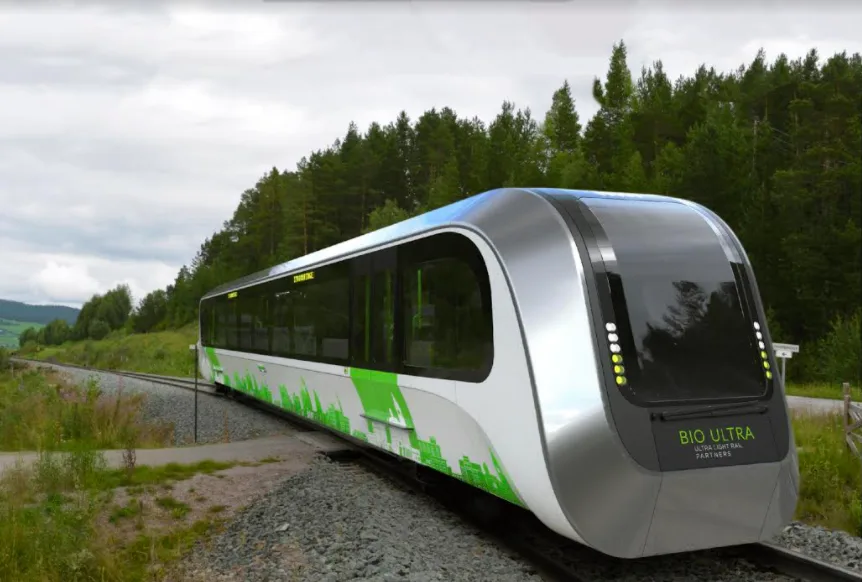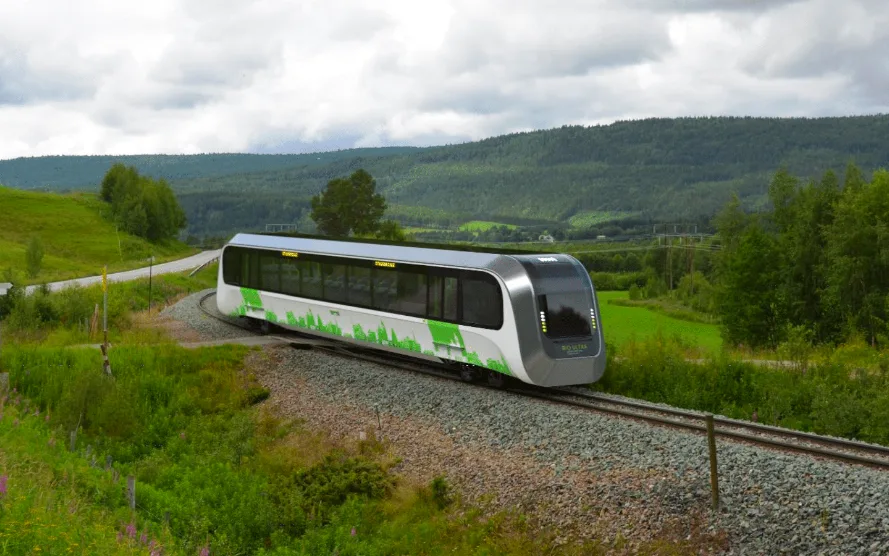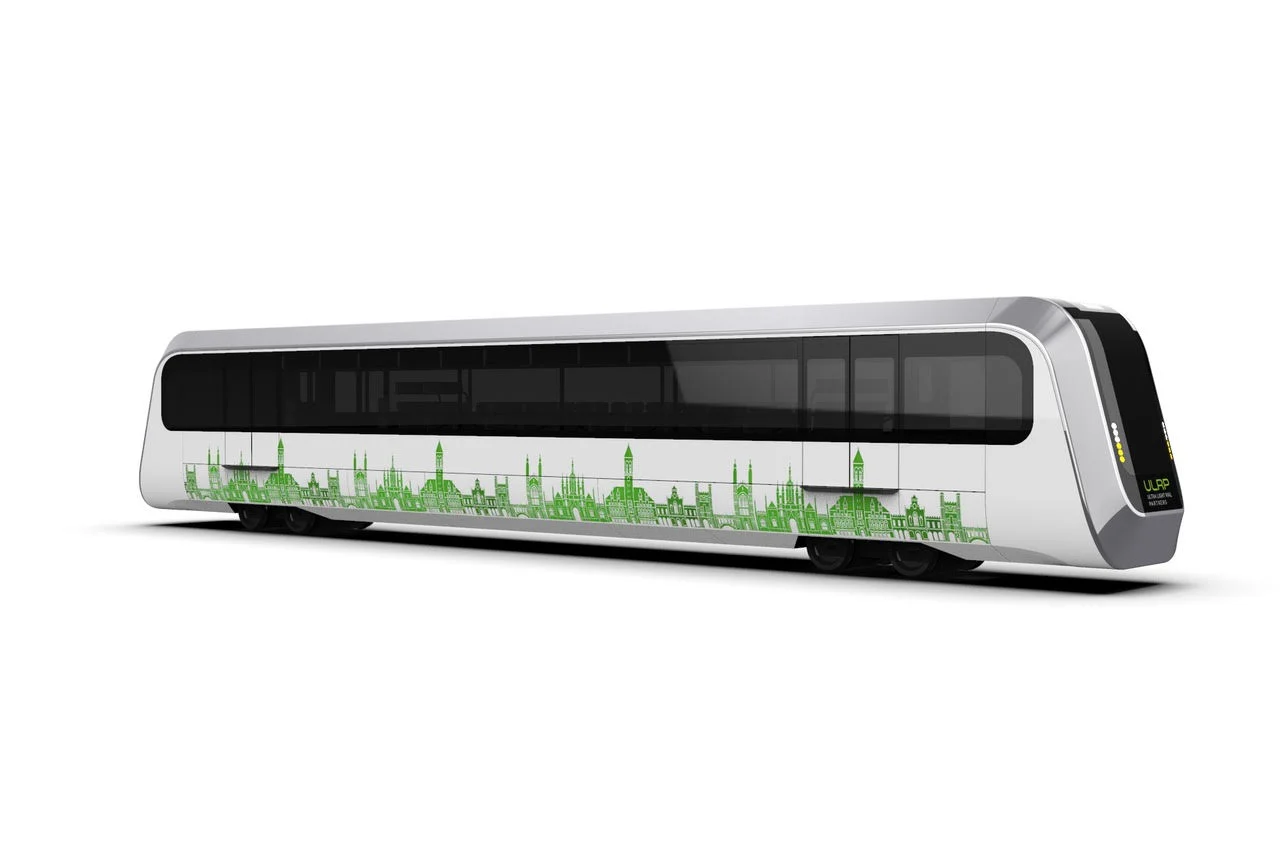
Gas from human waste, rotten food could fuel trains in the U.K.
The U.K. is phasing out trains powered by diesel and biomethane gas is one of the highly efficient renewable energies that the government is exploring.
While human sewage and rotting food might not seem like viable materials to source energy from, Ultra Light Rail Partners says this organic matter can be converted into biomethane gas that can replace other polluting energies and power trains across the United Kingdom.
Ultra Light Rail Partners received a grant from the government’s Sustainable Innovation Fund in 2020, which is being used to develop a BioUltra train that can run on biomethane gas and transport up to 120 passengers. The BioUltra train is a larger version of the demo 'mini train' that the company built in July 2020, which is 10 metres long and capable of carrying 60 people.

Credit: Ultra Light Rail Partners
Biomethane is an increasingly popular biogas that is derived from organic matter such as sewage, manure, crop residues, and discarded food. These materials are digested and broken down by bacteria, which release methane during the process that takes anywhere from 18 to 60 days. The methane is then purified and can be easily stored as a gas or liquid. Gas tanks are built into the BioUltra train and store the biomethane, which is converted into electricity that charges the train’s batteries and powers its motors.
Beverley Nielsen, Chairman of Ultra Light Rail Partners, says that the high effectiveness of biomethane makes it a particularly attractive source of energy and states it is “the most environmentally-friendly fuel in the world.”
In 2018, U.K. officials announced plans to end “diesel-only” trains being used on Britain’s railways by 2040. This announcement came at a time when roughly 29 per cent of Britain's rail fleet ran solely on diesel, which releases high levels of particulate matter and greenhouse gases.
According to the Department for Business Energy and Industrial Strategy, transport was the U.K.’s largest source of pollution and released 28 per cent of all greenhouse gas emissions, which prompted government authorities to announce a ban on the sale of new petrol and diesel cars by 2035.

Credit: Ultra Light Rail Partners
“Biomethane energy could be used more frequently in the future if our politicians recognized its advantages and contribution to a reduction in the increase in greenhouse gases, which lead to climate change. At present, there is a lot of focus on electricity and hydrogen as vehicle fuels, whereas there is next to no attention on the contribution which biomethane is making and could make to a greater extent,” Nielsen explains.
“Hydrogen is a clean fuel but requires three times the amount than would be required if biomethane were used. It is created primarily from the steam reformation of fossil fuel natural gas at present causing more carbon dioxide emissions than Indonesia and the U.K. combined. There is much interest in clean green hydrogen produced from electrolysis of water but this is still very expensive and some off commercial adoption.”
Ultra Light Rail Partners hopes that biomethane technologies will expand to a number of regions in the coming years. “We want to be able to offer this option to larger towns and smaller cities around the U.K. so they can realistically take polluting vehicles out of their city and town centres improving quality of life for all,” the company stated.







